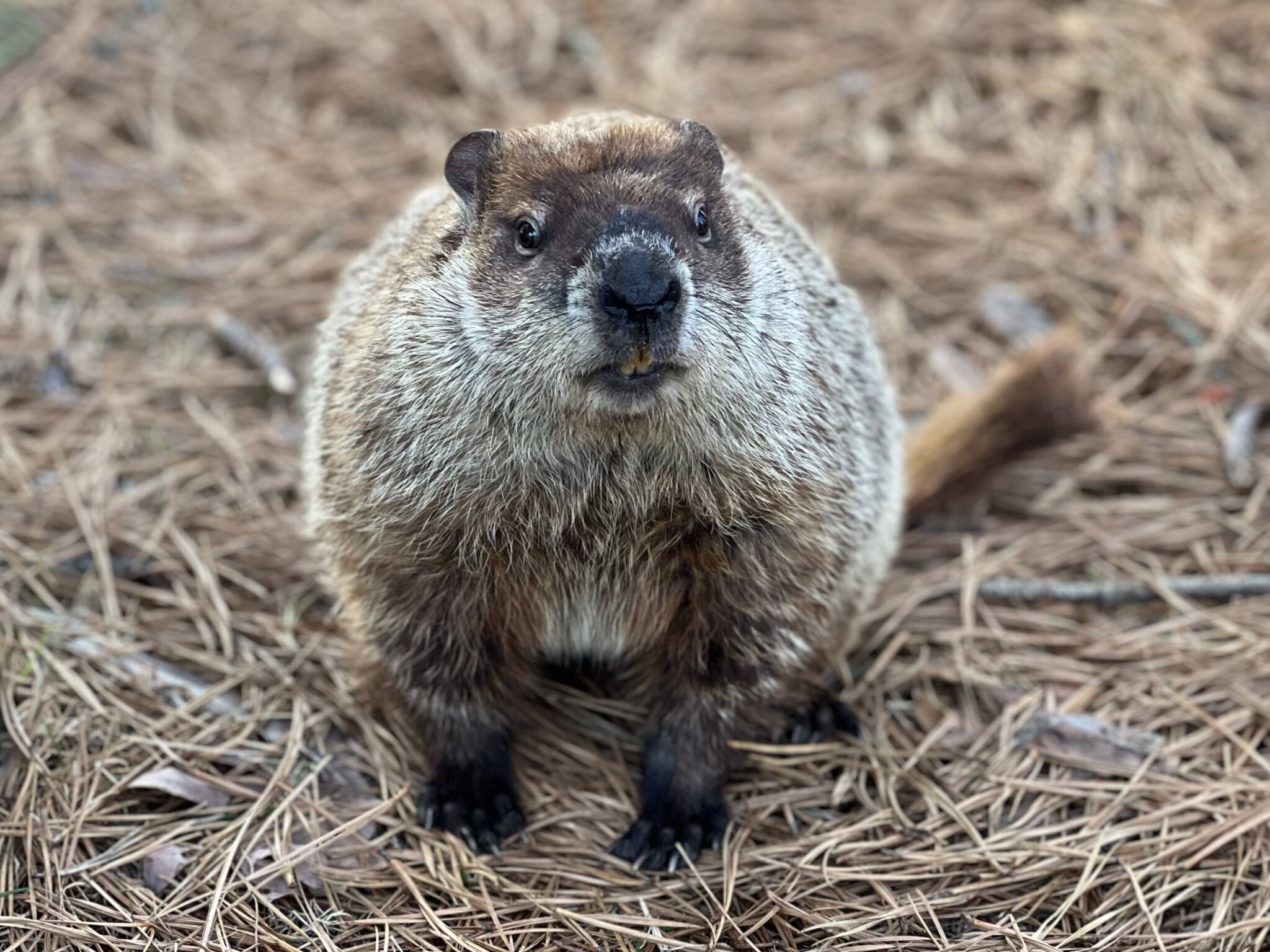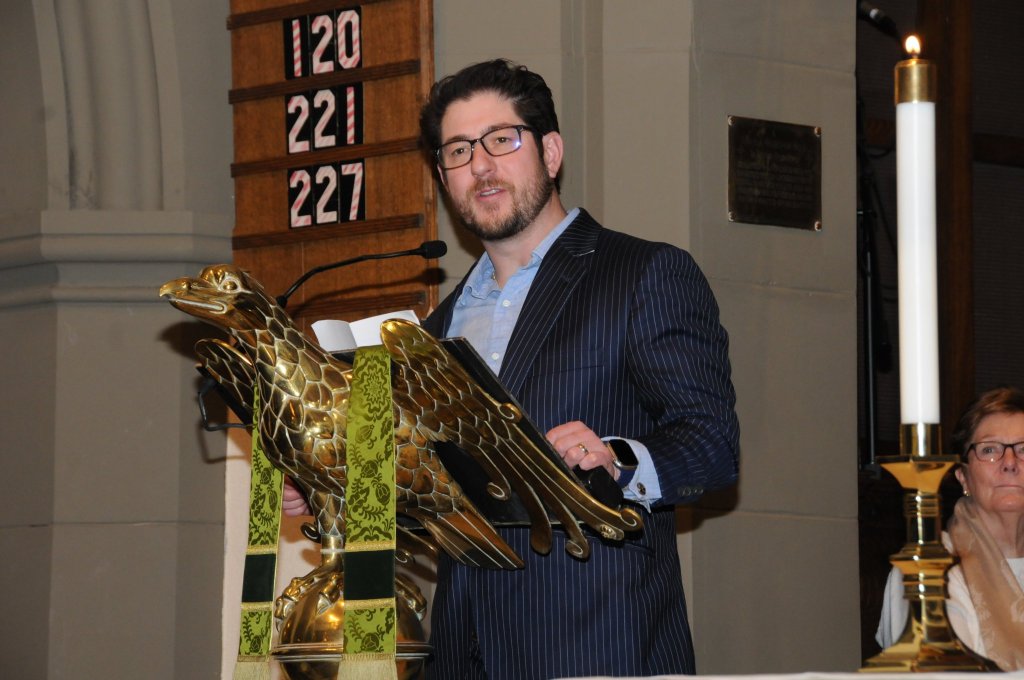How Allen McButterpants Became a Hamptons Groundhog Day Forecaster

Since he was found on December 19, 2020, Allen McButterpants the groundhog has become a popular mascot and ambassador of the Evelyn Alexander (EA) Wildlife Rescue Center in Hampton Bays, taking center stage to make his forecast every Groundhog Day, which falls on February 2.
Allen was rehabilitated with the EA Wildlife Center after he was found in Eastport suffering from mobility issues, which prevented his release back into wildlife. A weak hind area had led the EA Wildlife Center to conclude that it’s likely from trauma or neurological disorders, potentially caused by a parasite called raccoon roundworm. While wildlife employees were able to prevent further damage to the brain from the parasite, it is impossible to reverse existing damage.
Allen was also found with a fractured rear right toe from a previous injury, causing the foot to be unstable. These factors prevent Allen from participating in basic groundhog survival skills, such as climbing and swimming, making him non-releasable. Despite these obstacles, the EA Wildlife Center continues to provide a happy home for the groundhog.
Groundhogs, despite their short day of fame, are often considered nuisances, infamous for digging in people’s backyards. A major concern for homeowners is that groundhogs ruin their yards or dig into their foundations. Contrary to popular belief, the EA Wildlife Center explains that the threat of ruined foundations is extremely minimal if none, and groundhogs actually play a very important role in backyard environments, as their burrows are highly beneficial to the soil.
Because of their unfortunate image, there is a large number of people relocating groundhogs out of their backyards, and into the woods, which is a major problem. Groundhogs don’t actually live in the woods; instead, they are typically found in small woodlots, fields and pastures, and open country or edges of woodland. Large woods and forests are strange and unfamiliar places to them, and these relocated groundhogs suffer tremendously until they are lucky and find a suitable grassy field, or they don’t.
Also known as woodchucks or whistle pigs, groundhogs derive their name from the Algonquian word “wuchak,” which means digger. While they might not seem like it, these mammals pack a high-pitched whistling sound, often when predators are in the area to alert other groundhogs, deriving the name whistle pig.
Predators, relocation and disease contribute to a much lower lifespan of groundhogs in the wild, averaging about two to three years and a maximum of six. On the contrary, groundhogs in captivity, such as Allen, can last up to 14 or 16 years.
Another inhibitor of groundhog lifespan is the raccoon roundworm parasite, which is not just a problem for Allen, but for all groundhogs and other mammals as well. The parasite is so commonly found that any neurological disorders in groundhogs are caused by either collision with a vehicle or by raccoon roundworm. The parasite is harmless to raccoons, but multiplies in the feces, and then the eggs are consumed by vegetation, the primary source of nutrients for woodland mammals.
Groundhogs are mainly herbivores, and their diet includes wild grasses, vegetation, tree bark, berries and agricultural crops. Allen McButterpants is no exception, and perhaps eats even a more sophisticated diet. Allen is fed various kinds of lettuce such as kale and romaine, carrots, beets, tomatoes and more. While the center employees also feed Allen rodent block, which is kibble packed with nutrients, Allen doesn’t enjoy it nearly as much as his vegetables.
Unique to other groundhogs, Allen does not hibernate in the winter. Explained by the EA Wildlife Center employees, reproducing hibernation conditions in the wild is extremely difficult and specific. During hibernation from October to early February, groundhogs lose about 25% of their body weight. Small differentiations between replicated conditions can be dangerous and lead to arising issues; thus it is safer for Allen not to hibernate.
Normal adult groundhogs will eat up to a pound of food a day, receiving most of their hydration from it. Groundhogs will start to become heavier in the autumn as during the summer, and as early as June, their metabolism slows to increase fat stores in preparation for hibernation.
Digging is a groundhog’s favorite activity, and Allen is let out to roam the EA Wildlife Center’s land and fulfill his digging frenzy daily — and he never gets bored. Groundhogs can move up to 700 pounds of dirt a day, digging burrows up to 66 feet long and four feet deep. The intricacy of the burrow is not to be underestimated, as burrows have two or more entrances, and have separate chambers for sleeping, bathroom and nursery.
Most groundhogs are naturally solitary creatures and are kept separate from each other in captivity — especially in Allen’s case, since he is male. Groundhogs are naturally territorial and will aggressively defend their turf, using a high-pitched whistling sound as a warning signal, and to attract a mate.
Despite Allen’s territorial nature, he has a very calm and easy-going personality, and is the center’s favorite ambassador for events. Each day, the wildlife center exercises him to aid his mobility impairments, and he has already tremendously improved since his arrival.
The EA Wildlife Center invites the public to attend its Groundhog Day event at 10 a.m. February 2 to watch and learn if Allen McButterpants sees his shadow, meaning six more weeks of winter, or not, meaning an early spring.
The Evelyn Alexander Wildlife Rescue Center, a 501(c)(3) not-for-profit organization, depends on donations from the local community, businesses and visitors, to continue rescuing and rehabilitating Long Island’s wildlife yearound. Dedicated to reducing the threatening impact of humans on wildlife, the refuge can only function with your help.
The center is located at 228 West Montauk Highway, Hampton Bays. It can be reached at 631-728-4200, and animal emergencies can be reported at 631-728-WILD (9453). The center is open 9 a.m–5 p.m. seven days weekly. Visit wildliferescuecenter.org for info.









